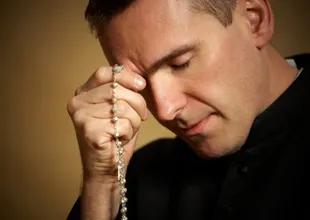
Closeted Clergy
It’s no fun being closeted. Whatever keeps you behind a closed door, whether it’s your sexuality or your secret, it is generally considered a good thing to come out. Be who you are. Be open. Be honest. Be authentic. Celebrate who you are or, if it’s your secret that is hidden, deal with it in the open.
That said, coming out is not always a good idea.
I’m thinking here about closeted clergy. Not those who are gay or have behaved badly but those who have changed their mind and no longer believe in a god.
Ever heard of them? Not likely. That’s because they are closeted. They have weighed their doctrines and found them wanting. They have sided with the growing number of census participants who tick the box beside “none” in the question of religion. But to go public means that they would lose not only their job but perhaps also their family, friends and their very identity as a person. Research shows that their is a sense of loss akin to a death when someone no longer believes in a supernatural deity.
Back in 2006, former evangelical pastor Dan Barker talked to evolutionary biologist and author Richard Dawkins about the challenges of clergy closeted in disbelief and how they might be helped. A few years passed but in 2011, the Clergy Project was launched with 52 charter members.
In short, the Clergy Project is a private online forum for “current or former religious professionals who no longer hold supernatural beliefs.” The website is only accessible to screened, registered forum participants. They can come out anonymously, using an alias and avatar before they are ready to come out completely. Meanwhile, members can seek help in a community where they are not going to be judged.
By the time I heard about the Clergy Project in 2014, I had retired from active ministry after more than three decades. I was testing and examining the faith I once espoused but doing so only in the privacy of my study. I was documenting my epiphanies in what would eventually be the book Life Beyond Belief: A Preacher’s Deconversion. While I was not desperate for the fellowship of unbelievers, I thought that it might be helpful to hear the experiences of others who had not yet gone public about giving up the ghost, so to speak.
I remember have some trepidation about being interviewed on the phone before being admitted to the online forum. I understood the cautions. Active clergy could be easily outed by someone who discovered, albeit surreptitiously, that they no longer believed and wanted to harm their priest or pastor. But I’d never tried to join a group that wanted to interview me before granting membership.
No sweat. I had a lovely chat with the interviewer who simply wanted to confirm my bona fides. What I learned from the Clergy Project, however, were some heartbreaking stories of those who struggled to continue in ministry when they privately no longer believed what they preached and those who shared their struggles with a spouse and whose marriage suffered.
Once I came out publicly 5 years ago with the publication of my book, however, I learned the importance of the Clergy Project. I received emails from clergy I’d never met who shared similar struggles but who for valid reasons, fiscal and familial, could not go public.
What I did not say then, but would say now, is that if you are a minister who no longer believes, you are not alone. In fact, and the reason I’m writing this now, is that the number of members of the Clergy Project has gone from those 52 charter members to 1000 members. Think of that. A thousand clergy who no longer believe.
Clergy struggle. We all do. But a growing number, it seems, struggle with something you might not imagine. Unbelief.
Post a comment